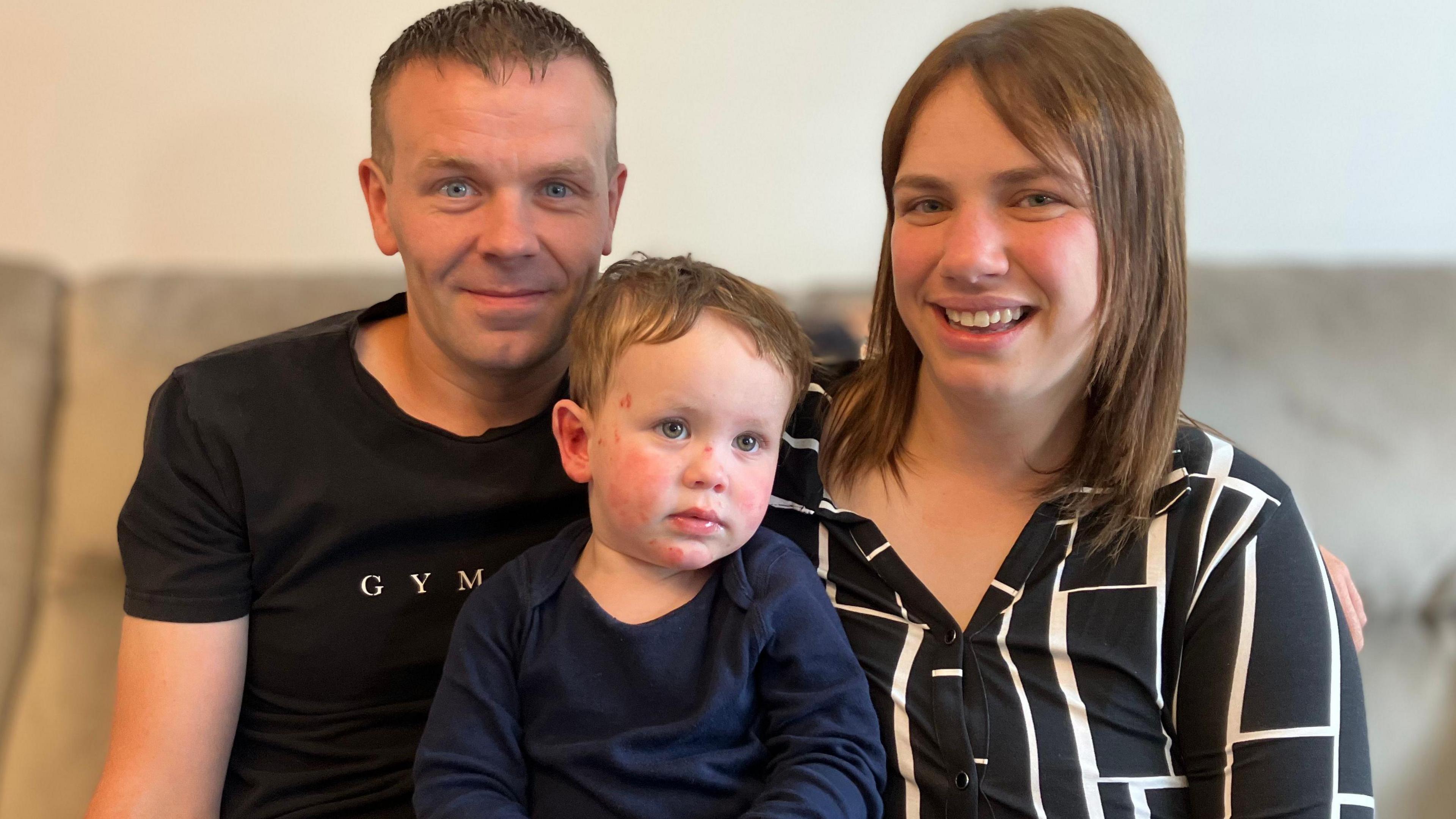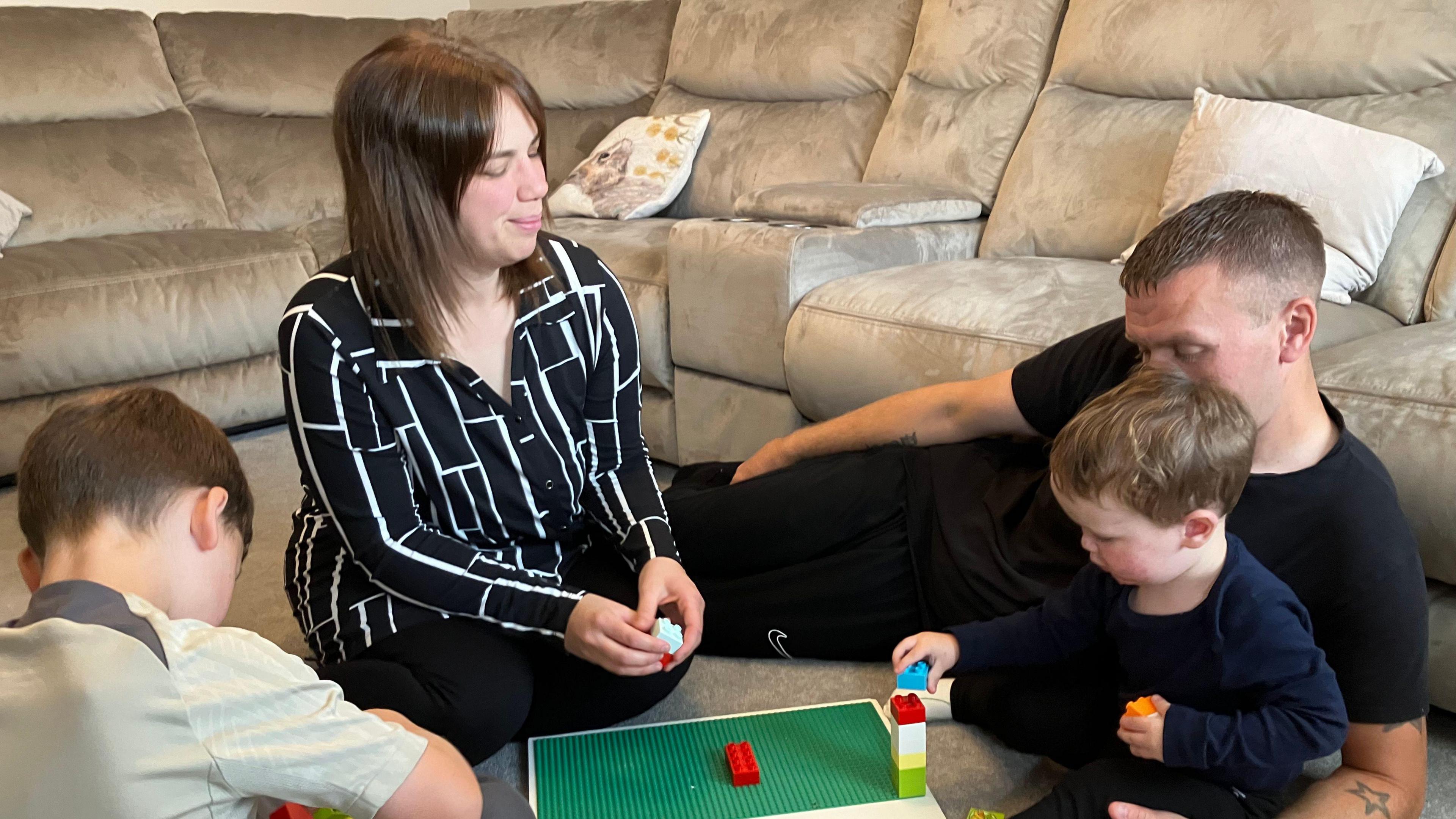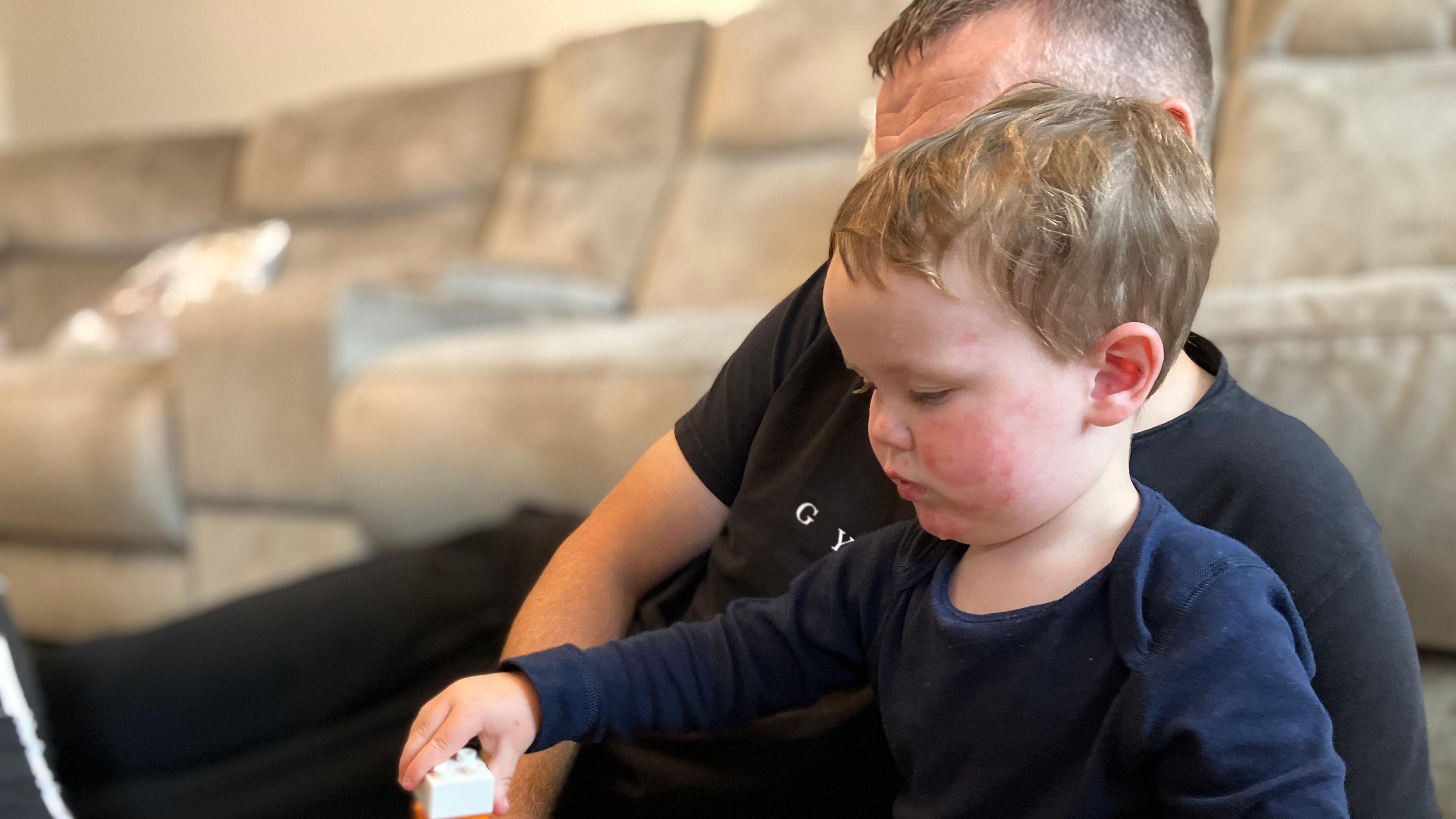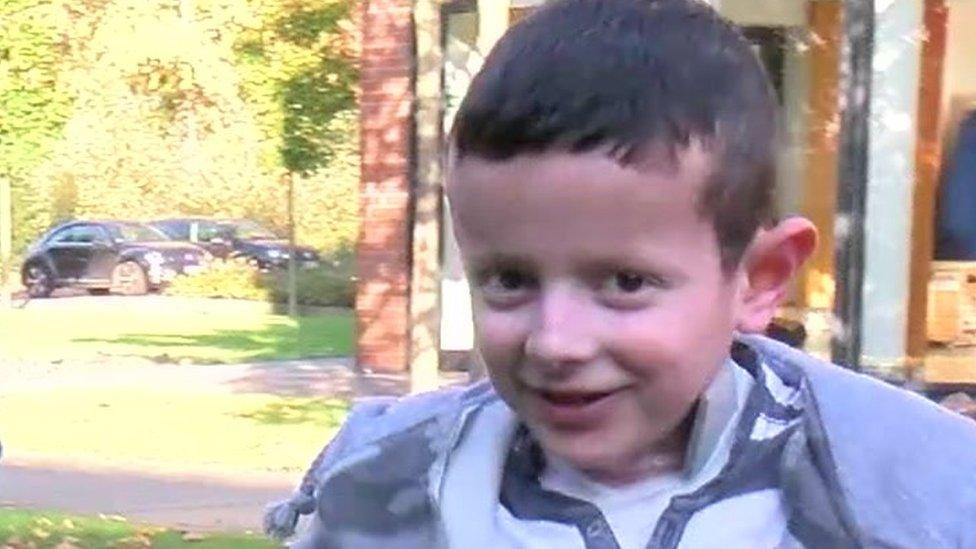'We take it day by day with son's skin condition'

Leo's parents, Daniel and Sarah Statham, described him as a "very happy and energetic little boy"
- Published
A couple say they are "often afraid to cuddle" their two-year-old son due to a group of genetic conditions that cause his skin to break and blister with minimal contact.
Daniel and Sarah Statham say their son Leo has the "most severe" form of junctional epidermolysis bullosa (EB), an incurable condition, external that causes many babies to die within their first two years of life.
The couple, from Hinckley in Leicestershire, said they were given a prognosis of two years for their son, and are taking things day by day.
"His condition is so painful, and Leo doesn't understand," Mrs Statham said.
'Minefield of dangers'
Young people with EB are sometimes called "butterfly children", due to their skin's fragility, like a butterfly's wing.
Leo is being treated at Birmingham Children's Hospital, which has a specialist EB service.
And his parents have found support from Loughborough-based Rainbows Hospice for Children and Young People - a charity currently appealing for funds to continue providing its services.
Mrs Statham, 32, said: "Just normal daily life is a minefield of dangers for Leo.
"We have to be so careful even picking him up and holding him.
"If he is lifted under his arms, that can shed his skin and cause open wounds."

Mr and Mrs Statham say they "really have to be careful" with Leo
There is currently no cure for the condition, or an effective treatment to prevent the skin problems caused by EB, according to the Great Ormond Street Hospital for Children.
In severe cases of EB such as Leo's, blisters become widespread, and blistered areas develop into wounds that can be difficult to heal.
Leo's parents said they had to be at his side constantly, as he could have flare-ups every 20 minutes.
Mr Statham, 35, added: "The prognosis was two years. He's hit two years, but we've been told we've got to take it day by day."
Although his parents said Leo had defied expectations of doctors when he was diagnosed, they "still live in fear".
Mrs Statham added: “Every time he closes his eyes, he is at risk. He has had corneal abrasions three times in his little life; once he couldn't open his eyes for two weeks."

Leo's parents say they try to let their son be as much of a child as he can be
The pair said Rainbows had been "absolutely phenomenal" since their son's diagnosis.
"In a life where we have nothing but uncertainty, we take solace at Rainbows," Mrs Statham said.
"There are parents who are in similar situations with poorly children, who just get it. We feel we have so much support there.
"We can just get a coffee and talk to supportive people, while knowing Leo is safe and cared for.
"We don't know our future and we all want to protect Leo. We have to live day to day, and we have been told by the specialists that he is one of a kind."
Follow BBC Leicester on Facebook, external, on X, external, or on Instagram, external. Send your story ideas to eastmidsnews@bbc.co.uk, external or via WhatsApp, external on 0808 100 2210.
Related topics
- Published18 January 2020

- Published8 November 2017
